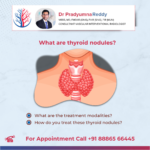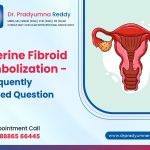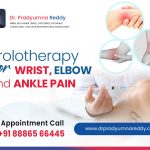If you ever experience severe pain and swelling in your legs, it could be due to varicose veins. Varicose veins are the twisted and enlarged veins in the legs. It causes severe pain and affects your quality of life. It occurs when you walk, and stand for a long time. This is because standing and walking can put more pressure on the leg veins. Apart from this, it can also occur due to various other reasons. If they are left untreated for a long time, they can lead to serious health issues.
When you visit a doctor for varicose veins, an ultrasound will be performed for diagnosis. Venous Doppler ultrasound of the leg is the most commonly performed ultrasound for varicose veins.
Venous Doppler Ultrasound to Detect Varicose Veins
The venous doppler ultrasound test is a non-invasive procedure that helps your doctor to know the faulty valves and other causes. This test is effective at determining the cause, the severity of the varicose veins and finally determines the best treatment plan. This test is usually performed on people who have varicose veins, leg swelling, if other treatments failed, and patterns of spider veins. The test also lets to know the functioning of the valves, the structure of leg veins and also the existence of blood clots.
The procedure makes use of sound waves and is considered one of the safe methods to detect varicose veins.
When is Venous Doppler Test Performed?
Your doctor will conduct a doppler test for the following:
- To look for any blockages
- To determine if there are any blood clots
- Examine varicose veins and spider veins
- To diagnose varicose veins and other vein diseases
- To map blood vessels to find a treatment plan for varicose veins
- To support and guide during the vein treatment
Do I Need Any Preparation for the Test?
You do not need any major preparation to undergo a venous doppler ultrasound test. The doctor might suggest the following to get accurate results:
- You need to remove clothing and any jewellery in the area to be treated. This is because those objects can cause disturbance to the test
- Do not smoke and stay away from nicotine containing substances at least 2 hours before undergoing the test
- Avoid drinking and eating 2 hours before undergoing the doppler test
- Do not wear any compression stockings during the test
- Stay hydrated by drinking the required amount of water and other supplements before the procedure
Following the above measures can help your doctor to conduct the test without any barriers.
What Happens During the Doppler Leg Ultrasound?
During the procedure, you need to lie on the bed or examination table. The doctor or technician will first apply a gel to the transducer device. It is a device that sends sound waves to the arteries and veins to be examined. Blood pressure cuffs will be placed on various parts such as ankles, calves, and other locations on your arms. The cuffs help to examine your arteries and to know the blood pressure in your legs and arms.
Now, the transducer device is moved on your skin around your arm and legs to generate images. The device sends sound waves to the blood arteries from your skin and body tissues. This generates data and is sent to a computer for further analysis. The computer converts the data to graphs to show blood flow to the arteries and veins. The transducer will again be moved on other locations for comparison of blood flow.
How Long Does the Procedure Take?
If the ultrasound is performed to look for only blood clots, it takes around 30 minutes. If the leg ultrasound is conducted to examine deep and superficial veins, it may take around one hour. To check the leaky valves, you need to stand during the test. You can schedule your work accordingly as you do not need to take a rest after the test.
What Do the Results Indicate?
The treatment for varicose veins is based on the result of the test. If the test result is normal, it means the blood flow to the arteries is normal, no blood clots and you do not need to worry. If the results are abnormal, you should visit your doctor to determine a further treatment plan. Some of the treatment options include:
- Use of compression stockings
- Sclerotherapy
- Vein stripping
- Laser treatment
- Ambulatory phlebectomy
Your doctor will determine the right treatment for you based on your condition, test results, and your signs.
Meet Dr Pradyumna Reddy for Varicose Veins Treatment
If you or your loved one is suffering from signs of varicose veins, Dr Pradyumna Reddy can help you. He is an experienced interventional radiologist in Hyderabad who has helped hundreds of people suffering from varicose veins. Our Varicose Veins treatment plan is based on the diagnosis, the severity of your condition, etc. We offer a personalized treatment plan by carefully evaluating your condition. To know more, call us today and schedule an appointment.






